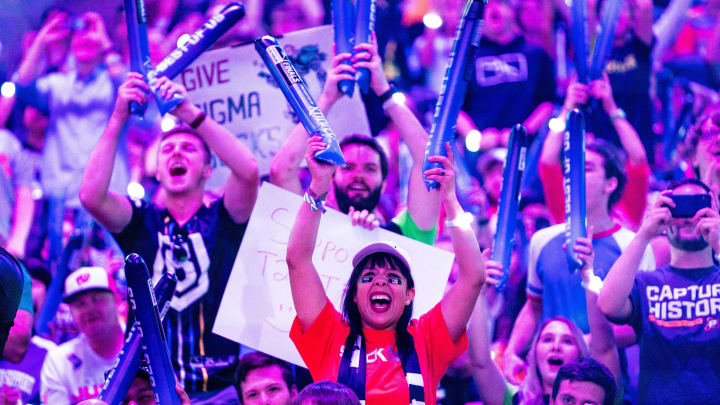The Biggest Challenges Facing Esports Betting

The Sports betting industry has boomed in the United States following its legalization in 2018, and many see esports betting as the next big opportunity in the market. However, the esports industry faces a number of unique roadblocks and hurdles that it will need to overcome before it can reach the heights of traditional sports betting.
Before the full opportunity of esports betting can be accessed by the ecosystem, it is critical all players in the space fully understand the regulatory challenges and barriers to widespread adoption facing what is ultimately an industry still in its infancy.
Is Esports Betting Legal?
Yes, Esports betting is legal in 18 states in the United States of America. Players must be 21 or older, and complete a Know Your Customer (KYC) check to play.
Esports betting is only legal in 18 states due to the complications of regulations. Each state has different regulations around betting and what is allowed, therefore, issues around integrity and age of participants for example are all roadblocks to legalising esports betting.
Related Article: The Evolution of Esports Betting
However, this is where our first challenge arises in the esports betting industry. As Daily Fantasy Sports (DFS) has exploded in the last few years, esports has also become available on DFS markets. However, as DFS is known as a game of skill and not chance, the legal age to participate is only 18, and most states in the US allow DFS. But where does betting become a game of skill?
Darius Gambino is a Partner at Saul Ewing, and has led the charge to legalize esports betting in recent years. He said, “Most states consider fantasy sports betting to be a game of skill, as opposed to a game of chance. In which case it falls under a different set of regulations, or it doesn't fall under what they have classified as gambling. You know, win or loss outcome is gambling. That's a game of chance. It's 50 50. One team's going to win. The other one's going to lose. With daily fantasy sports, you're betting on things like how many kills a professional player is going to get in a match.
That's the difference there, and because of that there is a difference in the law, you don't have to be 21 to engage in DFS betting. You only have to be 18 in most states. I think that's one of those areas where there has been concern expressed by different contingents. 18 is old enough to fully comprehend that DFS is very similar in concept to gambling.”
Market Prediction
Another issue that esports sees more than traditional sports is the knowledge needed to correctly predict the market, and value the odds at the correct prices. Esports is regularly changing, with teams, metas, and even complete titles updating monthly. This unpredictability further complicates the task of setting correct lines and requires specific esports knowledge.
Each esports game also has its own schedule and a different number of events depending on if it is a franchise league, open play, or several other formats. For example, it’s extremely easy to bet on Valorant as a newcomer due to there being only a few large-scale tournaments which are available to bet on. However, with Counter-Strike 2, you can bet on everything down to the second or even third tier of tournaments. This makes it hard for a newcomer to understand which matches are high stakes, and which they should be engaging with.
This means that the opportunity for adding new titles to esports betting markets largely relies on the game publishers themselves, as it has to be clear which matches are AAA blockbusters, and which are not to that level. Having regular major league tournaments helps with this, as well as a franchised league system.
Match Fixing
While it is much less common in 2024, there are famous examples of match-fixing that spread further than the esports community. One of the most notable examples is a professional Counter-Strike: Global Offensive match in 2014 between iBUYPOWER and NetCodeGuides.com. The iBUYPOWER team purposefully lost this match to win money on bets placed with CS:GO Skins. They were later banned from competing, and this brought CS:GO Skin betting into the spotlight.
However, match-fixing is still an issue, with professional CS2 player Erkhan “gokushima” Bagynanov most recently banned in April 2024 for a match-fixing offense.
Related Article: What Does The Future of Esports Betting Look Like?
Problem Gambling
Problem gambling is also a big potential issue in the esports betting industry, with the average bettor being younger than that of a traditional sports fan. However, if marketing is done responsibly, this becomes less of an issue. For example, websites such as Rivalry and Thunderpick use influencers to push sign-ups to their website. However, any bet slips or predictions that they post either have no monetary stake attached, or it’s very small, showing that betting can be fun without having to use massive stakes.
Felicia Grondin, Executive Director for the Council on Compulsive Gambling of New Jersey told Esports Illustrated that, as for unregulated sites “they don't necessarily play by the same marketing rules. So they might use phrases like free money, zero risk, etc. Companies that are regulated have restrictions and parameters that they have to abide by.
So there's more of an opportunity for kids to to hop on and to gamble as there’s less restrictions.”
There are a ton of resources available to help which continue to improve each and every day. For example, most esports betting sites now have predictive tools which can see if a player is falling into problem gambling, and step in to ask if they need help, or stop them without question.
Related Article: What is RMVG? Regulated Money Video Games Explained
For esports betting to reach the popularity that traditional sports betting has, the industry will need to overcome these challenges. However, there is a lot of work being done, and we can see where esports betting may get to in the future.
.
